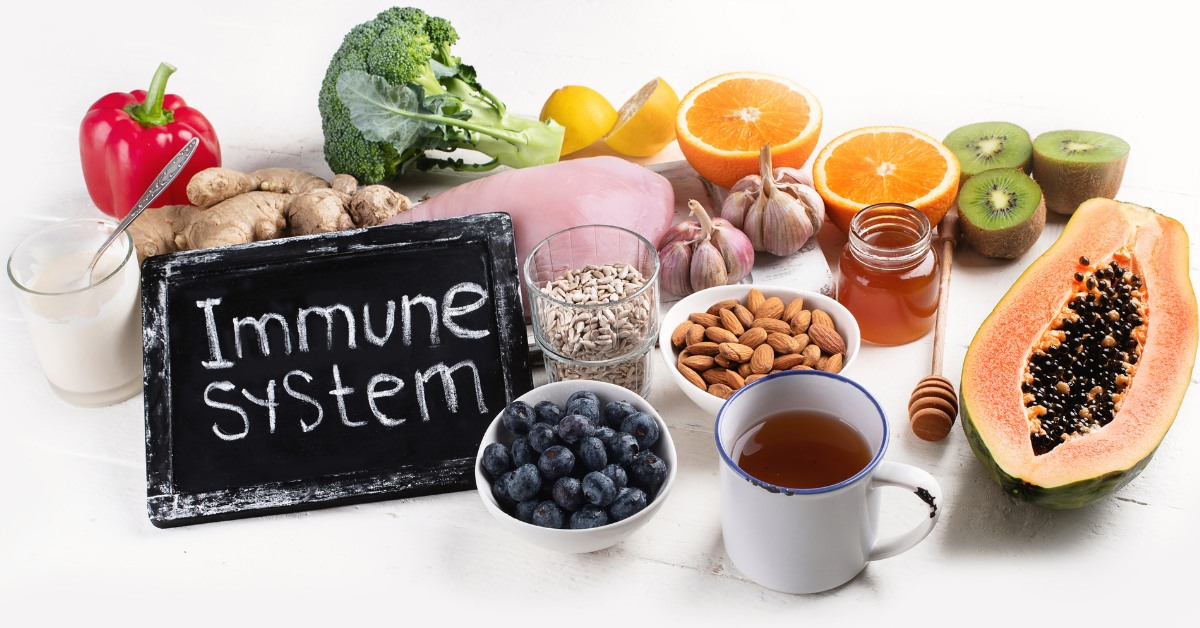Eating healthy is often overlooked by students amidst busy schedules and countless distractions. However, the impact of maintaining a nutritious diet cannot be stressed enough. In this comprehensive guide on the top 20 benefits of healthy eating for students and its importance, we will explore all the benefits of healthy food eating for students.
By incorporating a balanced diet, students can experience a multitude of advantages, not only in their academic performance but also in their overall well-being. Let’s dive in and uncover the remarkable benefits that come with embracing a healthy eating lifestyle.
What are the top 20 Benefits of Healthy Eating for Students?
Maintaining a healthy diet significantly impacts a student’s physical and mental well-being. Here are some key benefits:
1. Improved Academic Performance

Maintaining a healthy diet significantly contributes to improved academic performance. Research suggests that students who consume a nutritious diet consisting of whole grains, fruits, vegetables, and lean proteins demonstrate higher levels of cognitive function and perform better academically.
Also Read: Top 10 Homeopathic Remedies for Tinnitus Relief
2. Increased Energy Levels

A balanced diet provides students with the necessary energy to power through their busy schedules. By consuming nutrient-rich foods, such as complex carbohydrates and healthy fats, individuals experience sustained energy levels throughout the day, enabling them to focus better and accomplish tasks efficiently.
Also Read: Homeopathy Medicine for Hair Fall and Regrowth
3. Enhanced Concentration and Focus

Healthy eating habits contribute to enhanced concentration and focus, aiding students in absorbing and retaining information effectively. Foods rich in omega-3 fatty acids, such as nuts, and seeds, have been shown to improve cognitive function, memory, and overall brain health.
Also Read: Benefits of Homeopathy Treatment
4. Boosted Immune System

A well-nourished body is more resilient to illnesses and infections, which is especially vital for students. Incorporating immune-boosting foods, such as citrus fruits, leafy greens, and yogurt, into their diet helps strengthen the immune system, reducing the risk of falling ill and allowing students to maintain consistent attendance at school.
5. Better Sleep Quality

Healthy eating habits can positively impact sleep quality. Foods like dairy products, almonds, and bananas contain tryptophan and magnesium, which promote relaxation and improve sleep patterns. Adequate rest ensures students wake up refreshed and ready to tackle the day ahead.
6. Reduced Risk of Chronic Diseases

Engaging in a healthy diet during student years plays a critical role in preventing chronic diseases later in life. By adopting good eating habits, students can reduce the risk of conditions such as obesity, diabetes, heart disease, and certain types of cancer. A diet rich in fruits, vegetables, whole grains, and lean proteins provides essential nutrients, antioxidants, and fiber, safeguarding long-term health.
Also Read: What is the healthy diet to control hair fall?
7. Healthy Weight Management

Maintaining a healthy weight is crucial for students to reduce the risk of developing weight-related health issues. By consuming a balanced diet and practicing portion control, students can achieve and maintain a healthy body weight. Incorporating regular physical activity further aids in weight management.
8. Improved Digestive Health

A nutritious diet promotes good digestive health. Fiber-rich foods like whole grains, legumes, fruits, and vegetables help prevent constipation, regulate bowel movements, and maintain a healthy gut. Students who prioritize their digestive health often experience improved overall well-being and fewer disruptions to their daily routines.
Also Read: Homeopathic Medicines for Migraine
9. Enhanced Mood and Mental Health

Good nutrition is linked to improved mood and mental health among students. Foods rich in omega-3 fatty acids, such as walnuts, have been associated with a reduced risk of depression and anxiety. A well-nourished brain is better equipped to handle stress and maintain emotional well-being.
Also Read: Homeopathic Medicines for Cough
10. Strengthened Bones and Teeth

Proper nutrition is essential for maintaining strong bones and teeth. Students need adequate amounts of calcium, vitamin D, and phosphorus for optimal bone health. Consuming dairy products, leafy greens, and fortified foods ensures students receive the necessary nutrients to support the growth and development of their skeletal system.
11. Optimal Growth and Development

During the student years, young individuals undergo significant growth and development. Consuming a nutrient-rich diet is crucial to provide the necessary building blocks for their developing bodies. Adequate intake of protein, vitamins, and minerals is essential to support healthy growth, ensuring students reach their full potential.
12. Sharper Cognitive Abilities

Eating healthily is vital for maintaining cognitive abilities and mental agility. Nutrient-dense foods, such as blueberries, avocados, contain antioxidants that protect brain cells from damage and improve memory and cognitive function. Regularly including such foods in their diet can lead to sharper cognitive abilities for students.
13. Decreased Risk of Nutritional Deficiencies

A balanced diet helps prevent nutritional deficiencies that can negatively impact a student’s overall health and well-being. By consuming a variety of fruits, vegetables, whole grains, and lean proteins, students ensure they receive all the essential nutrients their bodies require for optimal functioning.
Also Read: PCOD Problem Symptoms and Treatment
14. Improved Skin Health

The importance of healthy eating extend to skin health as well. Students who consume a diet rich in antioxidants, vitamins, and healthy fats will notice an improvement in their skin tone, texture, and overall complexion. Including foods like berries, nuts,in their diet can promote a healthy glow and minimize common skin issues.
15. Increased Longevity

Adopting healthy eating habits during the student years sets a foundation for a longer and healthier life. By consuming a nutrient-dense diet, students reduce the risk of developing chronic diseases and promote overall well-being, leading to a higher chance of enjoying a longer lifespan.
Also Read: Top benefits of green tea
16. Enhanced Sports Performance

For students involved in sports and physical activities, healthy eating is paramount to achieve optimal performance. A well-balanced diet provides the energy, nutrients, and hydration required for muscular strength, endurance, and recovery. Consuming foods like whole grains, lean proteins, fruits, and vegetables enhances sports performance and helps students excel in their chosen activities.
17. Improved Eye Health

Good nutrition plays a crucial role in maintaining healthy eyesight. Foods rich in vitamin A, C, E, and omega-3 fatty acids, such as carrots, spinach, citrus fruits, contribute to improved eye health and vision. Students who prioritize these nutrients in their diet are less likely to experience vision problems and may prevent age-related eye diseases.
18. Heightened Hydration Levels

Staying hydrated is essential for students to maintain optimal bodily functions. Drinking an adequate amount of water and consuming hydrating foods like watermelon, cucumbers, and soups helps students stay refreshed, focused, and energized throughout the day.
19. Reduced Stress and Anxiety

A healthy diet can significantly impact a student’s mental well-being, reducing stress and anxiety levels. Foods rich in magnesium, such as nuts, and leafy greens, have been shown to promote relaxation and reduce stress hormones. By incorporating these foods into their diet, students may experience improved mental resilience and better stress management.
Also Read: Homeopathic Treatments for High Blood Pressure
20. Setting Lifelong Healthy Habits

By embracing healthy eating habits during their student years, individuals set themselves up for a lifetime of improved well-being. Establishing a foundation of nutritious eating at an early age enables students to develop positive eating habits that can be carried forward, ensuring long-term health benefits.
The Importance of Promoting Healthy Eating Habits For Students
Before we dive into the specifics of healthy food options for students, let’s first understand why it is essential to promote healthy eating habits among them. By nourishing their bodies with nutritious foods, students can experience various benefits:
Enhanced Cognitive Function
A diet rich in healthy ingredients fuels brain function, memory retention, and concentration, enabling students to reach their full academic potential.
Improved Energy Levels
Proper nutrition provides students with the energy they need to stay focused throughout the school day, preventing fatigue and enhancing their overall productivity.
Enhanced Immune System
Consuming a balanced diet high in vitamins, minerals, and antioxidants helps strengthen the immune system, reducing the risk of illness and promoting overall well-being.
Younger Generations Lead by Example
By educating students about healthy eating habits, we equip them with valuable knowledge that they can share with their families and communities, creating a positive ripple effect.
With these benefits in mind, let’s explore some of the challenges students face when it comes to maintaining a healthy diet.
Also Read: What are the difference between PCOS and PCOD?

Healthy Food Options for Students
Students can make smart food choices by incorporating the following healthy options into their diets:
Whole Grains
* Whole wheat bread
* Brown rice
* Oats
* Quinoa
Lean Proteins
* Legumes (beans, lentils)
* Tofu
Dairy or Dairy Alternatives
* Low-fat milk
* Greek yogurt
* Cheese
* Fortified plant-based milk (soy, almond, oat)
Fruits and Vegetables
* Berries (strawberries, blueberries, raspberries)
* Apples
* Oranges
* Bananas
* Leafy greens (spinach, kale)
* Carrots
* Bell peppers
Healthy Fats
* Avocado
* Nuts (almonds, walnuts)
* Seeds (chia, flax)
* Olive oil
Hydration Options
* Water (plain or infused with fruit)
* Herbal teas
* Coconut water
Note: We suggest that you should consult with your doctor first. If you are looking for a homeopath then you can book your online homeopathy consultation with Dr. Sahil Arora. He is one of the best homeopathy doctor in Delhi NCR.
Also Read: Diet Plan for Weight Gain
Challenges to Healthy Eating Among Students
Students encounter various hurdles when attempting to maintain healthy eating habits. Understanding and addressing these challenges is crucial to finding effective solutions. Here are some common obstacles students face:
1. Limited Time: Balancing academic commitments, extracurricular activities, and social engagements often leaves students with limited time to plan and prepare wholesome meals.
2. Financial Constraints: Budget constraints can lead to students opting for cheaper, often less healthy, food options.
3. Peer and Social Influences: Students may face pressure to conform to unhealthy eating habits influenced by peers or societal norms, such as fast food consumption or snacking on sugary treats.
4. Lack of Nutritional Education: Insufficient awareness about the importance of nutrition and limited knowledge of healthy food options can hinder students’ ability to make informed choices.
5. Adulterated or contaminated food: Often we see the fruits and vegetables available today in the market are contaminated with insecticides and pesticides. They are often coated with some shiny materials so as to attract the consumers and look expensive. And in the process they loose their health benifits over bad effects.
Now that we have identified these challenges, let’s uncover practical tips for students to incorporate healthy food into their diet, despite these obstacles.
Tips For Students To Incorporate Healthy Food into Their Diet
Convenience and Preparation
Convenience plays a significant role in students’ food choices. By adopting the following strategies, students can maintain a healthy diet without sacrificing time or convenience:
Plan Ahead: Dedicate a specific time each week to plan meals and create a shopping list based on nutritious options.
Meal Prepping: Prepare meals or meal components in advance to save time during busy weekdays. For example, pre-chop vegetables, cook a batch of grains, or pre-cook proteins that can be easily incorporated into meals throughout the week.
Also Read: Viral Fever Symptoms
Packing Nutritious Lunches
Packing a nutritious lunch ensures that students have control over the quality and nutritional value of their meals. Here are some ideas for wholesome, on-the-go lunches:
Sandwich Makeovers: Opt for whole-grain bread or wraps, and fill them with lean proteins along with fresh vegetables.
Colorful Salads: Pack pre-washed greens, colorful bell peppers, cherry tomatoes, and a protein source such as boiled eggs or grilled tofu.
Bento Box-style Meals: Utilize divided lunch containers to create well-balanced meals, incorporating a variety of nutritious components such as whole grains, protein, fruits, and vegetables.
Healthy habits: Always wash the fruits and vegetables before eating. Do not go by the looks of the fruits.
Making Healthier Snack Choices
Snacks are an integral part of students’ daily routines. By opting for healthier alternatives, students can maintain their energy levels and avoid consuming empty calories. Here are some nutritious snack suggestions:
Fresh Fruit: Pack apples, berries, grapes, or sliced melons. The natural sweetness and plethora of vitamins make fresh fruit an ideal snack option.
Yogurt Parfaits: Layer low-fat yogurt with granola and fresh fruit for a tasty and satisfying snack that provides calcium and protein.
Nut Butter and Whole Grain Crackers: Choose natural nut butters without added sugars or oils. Pair them with whole grain crackers for a satisfying and protein-rich snack.
Prioritizing Balanced Meals
When it comes to main meals, students should aim for balanced plates that encompass all essential nutrients. Here are some guidelines to ensure well-rounded meals:
Incorporate Protein: Include lean sources of protein such as tofu, or legumes in each meal to support growth and repair.
Color Your Plate: Fill half of your plate with a variety of colorful fruits and vegetables to ensure an intake of vitamins, minerals, and fiber.
Choose Whole Grains: Opt for whole-grain bread, pasta, rice, or quinoa as a source of complex carbohydrates, providing long-lasting energy.
Healthy Fats: Incorporate healthy fats such as avocado, olive oil, nuts, or seeds in moderation to support brain function and overall health.
Promoting Healthy Eating Habits For Students
Peer pressure and societal norms can significantly impact students’ eating habits. However, by adopting these strategies, students can overcome negative influences and prioritize their well-being:
Share Knowledge: Educate friends and classmates about the benefits of healthy eating, and encourage them to join you in making nutritious choices.
Seek Support: Find like-minded individuals who share your commitment to healthy eating, and engage in activities such as cooking together or exploring new healthy recipes.
Stand Firm: Don’t be swayed by negative peer influences. Stick to your convictions and make choices that align with your health goals.
Creating a Supportive Environment
Creating a supportive environment at home and in educational institutions is crucial for students’ success in maintaining healthy eating habits. Implement the following ideas to foster a culture of wellness:
Family Engagement: Involve the entire family in meal planning and preparation, encouraging everyone to make nutritious choices together.
School Initiatives: Advocate for healthy meal options in school cafeterias and collaborate with school administrators to introduce nutrition education programs.
Community Gardens: Promote community gardens or participate in local farmers’ markets to expose students to fresh, locally sourced foods.
Celebrate Success: Recognize and reward students’ efforts to make healthy choices, creating a positive and empowering atmosphere around healthy eating.

Conclusion
Incorporating healthy eating habits in a student’s life brings an array of benefits that positively impact their academic performance, physical health, mental well-being, and overall quality of life. By consuming a balanced diet enriched with fruits, vegetables, whole grains, lean proteins, and healthy fats, students can experience improved concentration, enhanced energy levels, reduced risk of chronic diseases, and much more. Start making small changes to your diet today and witness the incredible transformation in your life. Remember, investing in your health now will pay dividends for years to come.
Sources:
- Centers for Disease Control and Prevention
- MedLine Plus, US National Library of Medicineexternal icon
- Office of Dietary Supplements, National Institutes of Healthexternal icon

